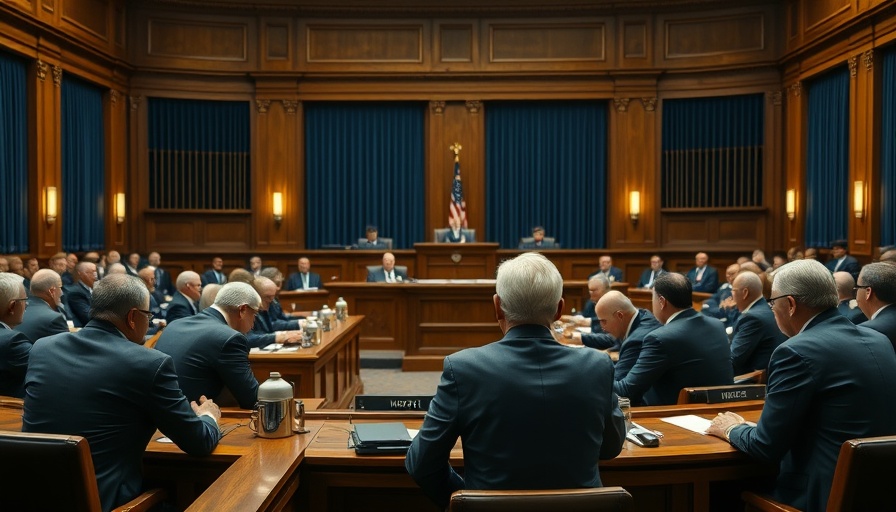
House Republicans on the Move: Major Tax and Medicaid Reforms Ahead
In what can be described as a pivotal week in American politics, House Republicans have advanced a substantial domestic policy bill, a result of over 17 hours of rigorous deliberations. The proposed legislation aims to extend the tax cuts initiated by President Trump in 2017 while introducing significant changes to Medicaid and other essential programs. This legislative effort occurs as Republican leaders rush to pass the bill through the House before the upcoming Memorial Day recess.
Understanding the Bill: Components and Controversies
The centerpiece of this comprehensive reform is a $3.8 trillion package designed not only to enact tax cuts but also to address funding for military and immigration enforcement. Key provisions include a temporary exemption from taxes on tips and overtime pay, appealing to many workers. However, funding these cuts requires offsets, primarily through proposed reductions in vital services such as Medicaid, food assistance, and subsidies for clean energy initiatives.
The Pushback: Internal Party Divisions
Despite the momentum, the bill faces substantial internal resistance among House Republicans. Some conservative members argue that the cuts to Medicaid lack sufficient depth, fearing the proposed work requirements for beneficiaries will delay significant savings until after the next presidential election. Others from higher-tax states like New York express frustration over provisions that fail to address their specific financial grievances, including limitations on state and local tax deductions.
Relevance to Current Events: The Wider Impact of Legislative Changes
This legislative push comes in the context of ongoing debates about government spending and the responsibilities of the welfare state. Many parents, particularly those in vulnerable households, are understandably anxious about how these changes could affect their access to essential services. Health care and social safety nets form a crucial part of everyday life; thus, any alterations carry significant ramifications for public well-being. As lawmakers debate these issues, families are left wondering how potential cuts may shape their future.
Future Predictions: A Divided Congress Ahead
As the House prepares for further discussions, the potential outcome of this bill will likely shape political strategies heading into the next election cycle. With some Republicans advocating for deeper cuts, while others aim for a more moderate approach, the path forward is fraught with challenges. Lawmakers need to carefully consider public sentiment as they negotiate the balance between fiscal restraint and the provision of vital welfare services.
Empowering Your Voice: Understanding Legislative Processes
For citizens, the advancement of this bill highlights the importance of staying informed and engaged with legislative processes that directly impact their lives. Parents, adults, and concerned citizens alike have a pivotal role in voicing their opinions to lawmakers. Engaging in community discussions or petitions can help foster a dialogue about the implications of tax and Medicaid reform, encouraging representatives to consider the real-world impact of their decisions.
Conclusion: The Time is Now to Stay Informed
The ongoing discussions around tax and Medicaid cuts are not just political maneuvers; they reflect broader themes of community resilience and fiscal responsibility. As the government seeks to shape fiscal policy, it is essential for individuals to remain engaged in these vital discussions. Parents and families should actively participate in advocating for their interests, ensuring that their voices contribute to the legislative process. Keep a close watch on how these potential changes unfold—they will undoubtedly have long-lasting effects on the American landscape.
 Add Row
Add Row  Add
Add 




 Add Row
Add Row  Add
Add 

Write A Comment